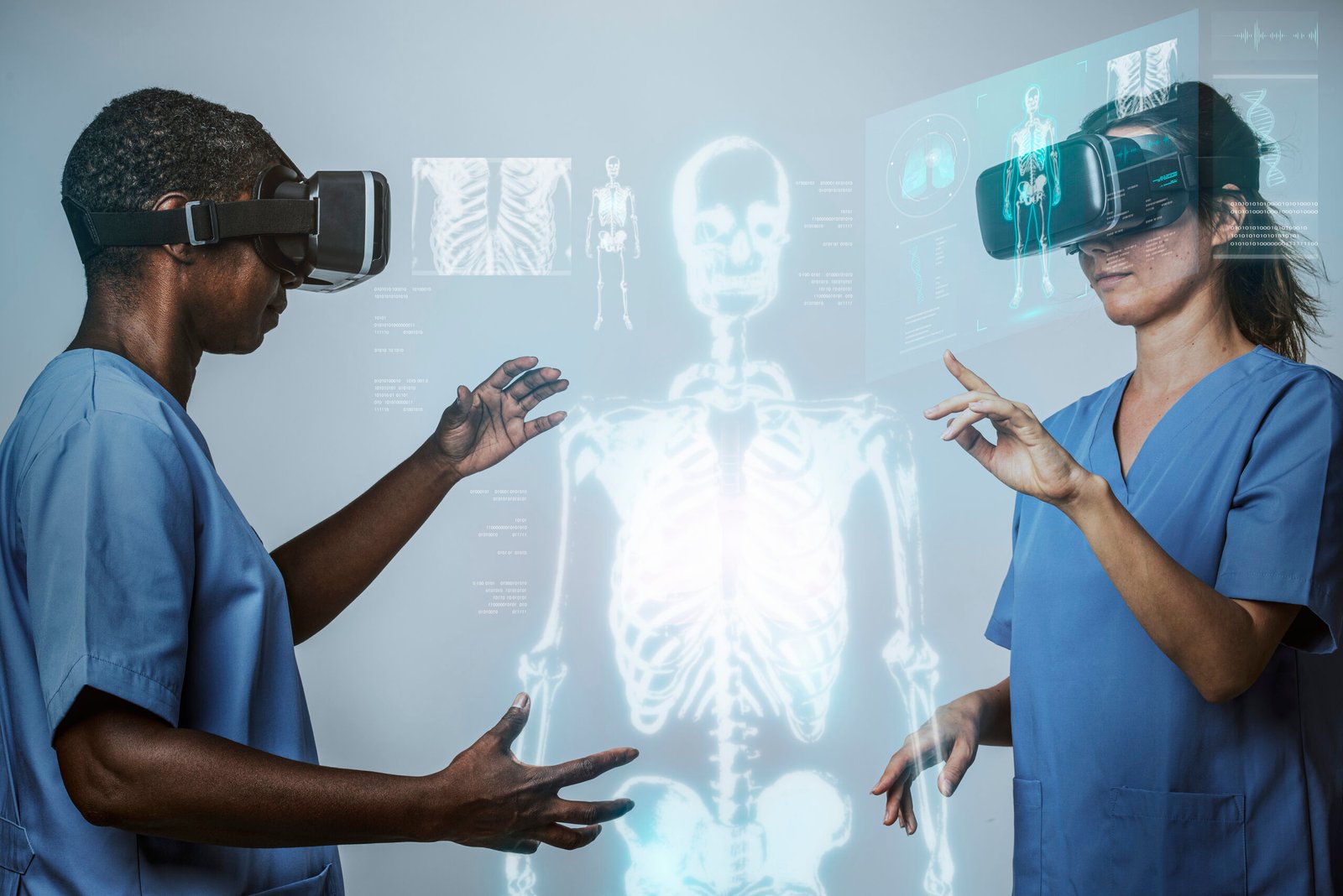A New Era of Healthcare
Virtual Reality (VR), initially known for gaming and entertainment, is now transforming healthcare by offering new ways to enhance medical practices. These developments are driven by advancements in VR technologies and their growing potential for training, treatment, and research through simulation.
Everything is being transformed to include virtual surgical simulation training scenarios to precision mental health treatments, which will undoubtedly engage patients and further develop healthcare understanding in a whole new light. This blog explores the diverse applications of virtual reality in health science, highlighting its impact on various healthcare domains.
How VR is Revolutionising Medical Training
- Engaging Simulations for Physicians and Surgeons: VR provides realistic, immersive environments that allow medical practitioners to simulate complex procedures.
- Simulated Learning without Potential Risk to the Patients: Trainees can practice surgical procedures without the risk of harming actual patients, all within a safe and secure environment.
- Enhanced Understandability of Anatomy: Detailed 3D visualisations of human anatomy in VR improve the understanding of complicated medical conditions.
- Capacities Development: Repeated practice through simulated scenarios helps improve decision-making under pressure and skills retention.
- Reduced Training Costs: Virtual training minimises the dependency on costly cadavers and physical facilities.
VR in Surgery and Patient Care
VR for Surgery and Simulation:
- Pre-Surgical Planning: The surgeon can visualise and plan for complex procedures using VR to gain precision and reduce operative time.
- Case Illustration from Real Life: VR simulators allow personalised surgical planning using accurate patient scans, improving outcomes and preparedness.
VR in Patient Care:
- Rehabilitation of Patients: In case of injury, a patient can use VR for guided physical therapy to aid recovery and movement.
- Pain Management: The immersive VR for pain management have proven effective, often reducing the need for opioids.
- Better Experience for Patients: Offering engaging VR can reduce patient anxiety and boredom during hospital stays. For example, Patients can engage in VR painting, sculpting, or music creation.
VR for Mental Health and Therapy
- VR-assisted Cognitive Behavioural Therapy (CBT): Therapists use VR environments to simulate real-life scenarios, helping patients confront their worries and anxiety.
- Virtual Exposure Therapy: VR helps patients with Post-Traumatic Stress Disorder and phobia by gradually exposing them to their triggers in a controlled environment, helping in desensitising.
- Decrease Anxiety and Stress: The use of VR in mental health treatment can help attain calmness and stress relief.
- Social Skills Training: VR in medical training can provide people suffering from social phobia or autism opportunities to practice social skills.
Virtual Reality in Pharmaceuticals and Research
- Molecular Interactions and Simulation of Drug Effects: The VR system visualises molecular interactions and simulates drug effects, speeding up drug development.
- Patient Education Enhancement: VR can create captivating educational experiences that help patients better understand their medications and diseases.
- Medication Adherence: VR can support medication adherence by reminding patients to take their medicines and providing real-time feedback.
- Data Visualization: Complex data visualised in a 3D environment enables research and analysis.
Conclusion
Virtual Reality in Healthcare has transformed medical practice by offering new possibilities in training research. VR offer clear advantages such as improved training, enhanced treatment outcomes, and a speedier pace of research.
Future technological advancements will further improve and expand the practical application of VR in physical therapy and rehabilitation. Besides, VR for hospital patient experience or VR in pharmaceutical research will promise a new age of personalised and effective medical care.
P-XR AG supports companies in revolutionizing healthcare with VR. For consultations and guidance on the use of VR in Healthcare, you can reach us at contact@p-xr.ch
